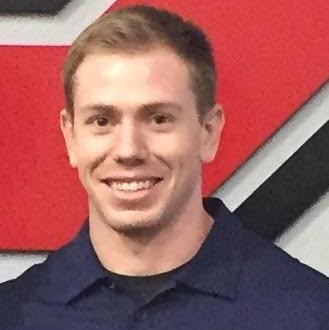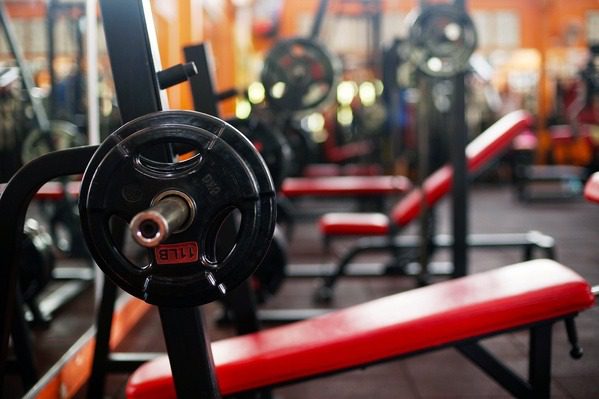Insights into a Strength + Conditioning Internship
Coach DevelopmentABOUT THE AUTHOR

RYAN LEIBREICH
Ryan is the Director of strength and conditioning at Pro Performance RX In Morgantown, West Virginia. Ryan has been working in the private sector with hundreds of youth athletes for the last 5 years. He is always excited to talk training and dig deep into the Why. Never stop learning, growing and adapting. In the great words of Bruce Lee be like water. To connect further with Ryan reach out to [email protected]
Every organization has a selection process, from fraternities with their pledging to the navy seals with buds. In Strength and Conditioning it is the internship, the initial introduction to what it takes to be a strength and conditioning coach. The time to see if you can cut the long hours, minimum pay and appreciation. You can come away with a great experience or one that’s not so good, but that is up to you.
I have two objectives I want coaches and interns to take away from this article.
1. How to get the most out of an internship
2. General expectations of an intern
The Process
Why do we need an internship and where does it lead?
Internships are designed to give you first-hand experience in the field of your choosing. Your goal during an internship is to absorb as much knowledge as you can and then apply it in the real world. That is done through properly navigating what is expected of you and being held accountable for those expectations by the staff.
Here is how it works
You have a great experience, crush your internship and go above and beyond. You learn and show you can apply it. This will set the tone for your future because a good internship can lead to a graduate assistantship and a graduate assistantship can lead to a full time position. Finally, with time and doing your job well, you might get to be a head strength and conditioning coach one day. Or there may be an alternative route you take, but the people met along the way will be the recommendations you need to propel you wherever you may go. So, let’s not forget that it all starts with the internship and there are expectations you have as soon as you walk in that door. The internship can be a win-win for both parties. Coaches will get a better intern that will aid in providing a better program to athletes and the intern will get a better experience and improved knowledge in the field strength and conditioning.
Why do coaches have interns?
We were all there once and want to give back, plus in a weight room you can never have enough hands. Personally, I love to educate the next generation of coaches and watch them grow and develop. We all get into coaching because we have a commitment to develop not just better athletes but better people. We have this fire inside us that is stoked when we aid others in reaching their full potentials. We want our interns to see that and fire and strive to bring that fire out within them as well. The goal is for them to not only improve themselves, as interns, but to improve others and to do it the right way.
// Intern Expectations
Step One- Day 1 to Week 3
From the first day there are general expectations that require no skill.
1. Show up on time and be reliable. On time is late FYI.
2. Be respectful and be seen not heard.
This may sound harsh, but this is your time to understand the culture of where you are and to observe. If you are too busy trying to think of questions to ask you are not able to appropriately assess your environment. Also, this is way too early to attempt to have you coach any athletes.
3. Introduce yourself to everyone.
Coach, what if I have questions? And yes all interns have a lot of questions.
How we approach questions:
A) Learn by watching first
B) Learn by doing second
We expect interns to be able to demonstrate movements to athletes
C) Learn by asking third
If you have a question during training, try to answer it yourself first. If you still have the question, WAIT UNTIL AFTER THE SESSION to bring it up. Do NOT blindly ask questions of coaches without a firm effort at answering the question in your mind first. This is one thing that will irritate more coaches than any other thing.
Step two- 1st semester (Week 4 – Week 16)
1. Learn the proper set up of the room for each section and where things go after. This means, be proactive in duties of daily operation. Do it before somebody has to ask. Start to learn to do things the way the coaches like them to be done.
2. Coaching. At this point you may be given some small coaching responsibility depending on how each program runs their process. One important thing to never forget is the Coach-in-Charge is the “voice” of the training session. Watch and learn how/when to give feedback to athletes (the coach will let you know when you can begin doing some ‘coaching’ as you demonstrate more understanding and competence of the program). NEVER contradict the coach in charge.

Step 3- 2nd semester (Week 16 – end of internship)
1. This part of your internship you should be actively learning the “why” we do what we do.
At this point you will be more assimilated into the coaching staff. You have been around long enough that you understand things and the coaches will start to trust you with more tasks. If you made it this far, you should be bought in.
2. As you become more comfortable with your internship, do not take your foot off the gas pedal. Remember that the small things still make a difference. Continue to stay busy and be proactive. Be committed to learning the training progressions. Take active responsibility for your learning experience. Be flexible. Things will change and we have to adapt regularly. We should be learning how to be antifragile.
Don’t forget this is an apprenticeship process. It take years to become proficient. In today’s age, many want instantaneous results. They don’t want to have that trial by fire, but here is the thing, you, need it! “Iron sharpens iron”. In order to develop the bonds and respect you need in this career, you need to be able to walk the walk and talk the talk. Are you doing the things you tell others they need to be doing or are you being a hypocrite? It is a never ending process of continually learning and refining everything you do.
Are you a better coach after reading this?
More coaches and athletes than ever are reading the TrainHeroic blog, and it’s our mission to support them with useful training & coaching content. If you found this article useful, please take a moment to share it on social media, engage with the author, and link to this article on your own blog or any forums you post on.
Be Your Best,
TrainHeroic Content Team
HEROIC SOCIAL
HEROIC SOCIAL
TRAINING LAB
Access the latest articles, reviews, and case studies from the top strength and conditioning minds in the TH Training Lab

